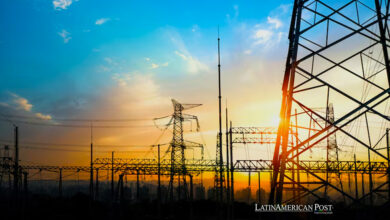Guatemala: Is the end of the CICIG near?
Listen this article
In the midst of criticism by President Morales to the CICIG, Guatemalans and international commissions ask that the agreement with the organization not to end

Amid protests, the president of Guatemala, Jimmy Morales, prepared to give the third report of his government. Early on, the streets of Guatemala City were full of police presence, with the aim of appeasing the protests that flooded the different parts of the country throughout the day.
Leer en español: Guatemala: ¿Llegó el fin de la Cicig?
In different departments, peasant, union and social organizations in Guatemala protested to express their rejection of the government of Jimmy Morales, as reported by Telesur. Among the main reasons for the protests was the disagreement of the population for the mission of the International Commission Against Impunity in Guatemala (CICIG). The purpose was aimed at fighting corruption and impunity.
The importance of the CICIG
In order to understand the fury of Guatemalans, it is essential to understand what this organization consisted of and what objectives it carried out in the country.
First, it is important to understand that this organization is a UN entity, which was requested by Guatemala to investigate illegal bodies that could harm the human rights of that country. Thus, on August 1, 2007, Congress approved its mandate and participation within Guatemala.
One of the main objectives, and according to the website of the same agency, "is to support the Public Prosecutor's Office, the National Civil Police and other State institutions both in the investigation of crimes committed by members of the illegal security forces and clandestine security apparatuses, as in general in the actions that lead to the dismantling of these groups ".
Through the period it was in Guatemala, the organization (and in conjunction with other important officials) managed to capture three former presidents of the country, due to links with corruption. In this way, Alfonso Portillo was arrested for money laundering; Álvaro Colom for stealing 35 million dollars for the construction of a means of transportation; and Otto Pérez Molina for being part of a contraband gang, as reported by El Tiempo.
However, despite the excellent management of the Organization, when involved in an investigation of CICIG, President Jimmy Morales began to retaliate against the organization. Morales was blamed for electoral fraud in the 2015 elections, and his son and brother were also charged with a property fraud case, the same media highlights.
Faced with the above, the president decided not to renew the visa of several officials, as well as to finish the mission of the Organization. If fulfilled, the CICIG would be in Guatemala until September. However, according to Prensa Libre, the president does not have the faculties to determine when the mission ends. Being a UN agency, only this will decide the end of the mission in Guatemala. That is why, the UN secretary, Antonio Guterres, rejected the announcement.
Maybe you're interested in reading: CICIG provokes a power struggle in Guatemala
Already forgotten?
Although Morales' statements were rejected by the international community (Germany, Great Britain, and Canada), in the presentation of the third report on his government, Morales decided to focus more on his achievements and to criticize the international intervention in of their country, referring to these as to "the world board changes the rules of the game" (world powers).
Faced with the above, he highlighted the two routes that the country has: "One is Guatemala and our laws and our policies or the new protest of the world order that seems to be new colonialism. The new colonization consists of imposing ways of thinking, of acting, of coexisting above our laws and our Constitution. "
addition to stating that "The International Commission Against Impunity in Guatemala is history." In the same described the Organization as "a failed experiment by the UN," way he continued his speech opposing the international organizations that mediated in the country, demanding the delegitimization of these to reach an "authentic democratic game in our country." He stressed that the country "must take the reins of justice and eradicate the political corruption to which it has been subjected."inAlso, the president of the Congress of the Republic, Álvaro Arzú Escobar,
The consequences
One of the consequences that arise if the organization is expelled or decides to leave the country is without a doubt the return of illicit networks that control both the political and the economic sphere. For the Central American Institute of Fiscal Studies (Icefi), the consequences of the attacks on the CICIG "could be very harmful to the country."
Besides, and as Forbes Mexico puts it, there could be "international isolation, restrictions on cooperation, both multilateral and bilateral, and deterioration of risk ratings, thus damaging the already fragile public finances and further slowing down the economic growth."
Finally, the Icefi, affirms that the attacks and reprisals against the CICIG must stop, and that it is necessary for the organization to continue carrying out "its tasks of obstacles and threats, as well as the fight against corruption and impunity in Guatemala."
LatinAmerican Post | Laura Viviana Guevara Muñoz
Translated from "Guatemala: ¿Llegó el fin de la Cicig?"





